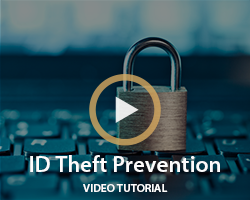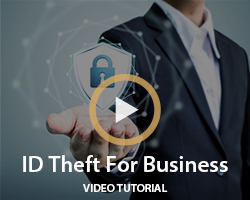Security Statement
This Internet Banking System brings together a combination of industry-approved security technologies to protect data for the bank and for you, our customer. It features password-controlled system entry, Secure Sockets Layer (SSL) protocol for data encryption, and a router loaded with a firewall to regulate the inflow and outflow of server traffic.
Secure Data Transfer
Once the server session is established, the user and the server are in a secured environment. Because the server uses 128-bit encryption, data traveling between the user and the server is encrypted with Secure Sockets Layer (SSL) protocol. With SSL, data that travels between the bank and customer is encrypted and can only be decrypted with the public and private key pair. In short, the bank's server issues a public key to the end user's browser and creates temporary private key. These two keys are the only combination possible for that session. When the session is complete, the keys expire and the whole process starts over when a new end user makes a server session.
Router and Firewall
Requests must filter through a router and firewall before they are permitted to reach the server. A router, a piece of hardware, works in conjunction with the firewall, a piece of software, to block and direct traffic coming to the server. The configuration begins by disallowing ALL traffic and then opens ports only when necessary to process acceptable data requests, such as retrieving web pages or sending customer request to the bank. Using the above technologies, your Internet Banking transaction are secure.
I’m a Victim of Identity Theft—What Should I Do?
If your identity has been stolen, you need to take immediate action to limit the damage and protect your good name.
- Contact Capital Bank and other related vendors immediately. Close any accounts that may have been tampered with or opened fraudulently.
- Place a fraud alert on your credit report with one of the three major credit bureaus. Also request to review your credit report for suspicious activity. A copy of your credit report is available free each year from www.annualcreditreport.com.
- Equifax®: 1-888-766-0008
- Experian®: 1-888-397-3742
- TransUnion®: 1-800-680-7289
- File a complaint with the Federal Trade Commission at www.ftc.gov.
- File a report with local police.
Fraud Prevention Tips
Below you will find information to help you avoid identity theft, protect yourself against fraud and scams. We hope you'll find this information useful and hope you'll visit often as we continue to add content.
- Protect Yourself From Jugging
- Internet of Things
- Phishing
- Cybersecurity While Traveling
- Creating Passwords
- How-To Guide for Multi-Factor Authentication
- Social Media Cybersecurity
- 5 Ways To Be Cyber Secure at Work
- E-Skimming
- Online Privacy
- Identity Theft and Internet Scams
- 5 Steps to Protecting Your Digital Home
- Beware of Fake Checks
- Money Mule Scams
- Cyber Essentials
- FDIC Consumer News – A Bank Customer’s Guide to Cybersecurity
- Cash Management – Risk Assessment and Controls Evaluation
- Frauds and Scams: Protect Yourself and Your Money – Fraud/Scams
- Spyware Alert – Avoid Spyware
- Avoid ID Theft: Deter, Detect and Defend – ID Theft Brochure
- Evite El Robo De Identidad: Detenga, Detecte y Defienda – ID Theft Brochure – Spanish
- Mobile Security
- Scams and Your Small Business

